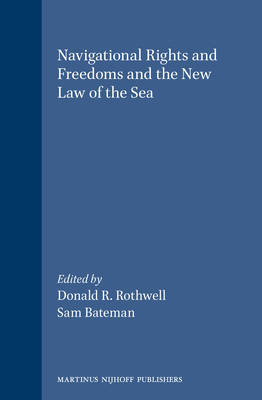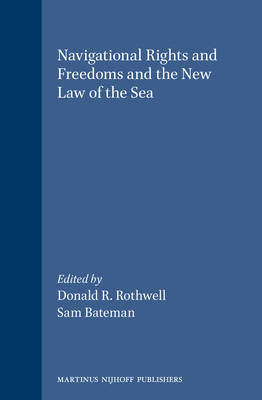
- Retrait gratuit dans votre magasin Club
- 7.000.000 titres dans notre catalogue
- Payer en toute sécurité
- Toujours un magasin près de chez vous
- Retrait gratuit dans votre magasin Club
- 7.000.0000 titres dans notre catalogue
- Payer en toute sécurité
- Toujours un magasin près de chez vous
Navigational Rights and Freedoms and the New Law of the Sea
401,45 €
+ 802 points
Description
Navigational rights and freedoms have been central to the development of the law of the sea since the original debates over whether the seas were `open' or `closed' to maritime traffic. The 1982 UN Convention on the Law of the Sea recognises the legitimate rights of coastal states to proclaim sovereignty and assert jurisdiction over vast areas of maritime space. In return, maritime states are given a range of navigational rights over waters ranging from the territorial sea through to the high sea. The new regime of the law of the sea created by the Convention presents an opportunity to review developments in the law of navigational rights and freedoms. This book assesses the navigational regime established by the 1982 Convention, with emphasis given to the continuing importance of the freedom of the seas. Navigation in the territorial sea and international straits is reviewed, especially in the Straits of Malacca and Singapore, and the Torres Strait. Archipelagic navigation from the perspective of two claimant states, Indonesia and the Philippines, and a user state, South Korea, is also considered. The interaction of environmental concerns with navigational rights is an important feature of the current law of the sea regime with relevant conventions assessed and the role of the International Maritime Organization in developing navigational standards considered. Both European and Canadian practice in the protection of sensitive marine environments and the impact upon navigational rights is also considered. Finally, the roles of the International Tribunal for the Law of the Sea and the International Maritime Organization in dispute resolution are reviewed, before a concluding consideration of the future for navigational rights and freedoms in the twenty-first century.
Spécifications
Parties prenantes
- Editeur:
Contenu
- Nombre de pages :
- 392
- Langue:
- Anglais
- Collection :
- Tome:
- n° 35
Caractéristiques
- EAN:
- 9789041114990
- Date de parution :
- 01-11-00
- Format:
- Livre relié
- Format numérique:
- Genaaid
- Dimensions :
- 155 mm x 235 mm
- Poids :
- 743 g

Les avis
Nous publions uniquement les avis qui respectent les conditions requises. Consultez nos conditions pour les avis.





